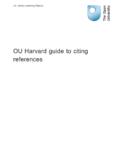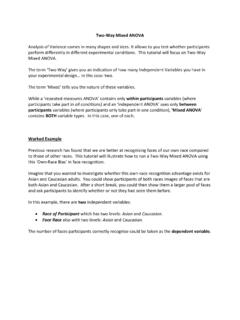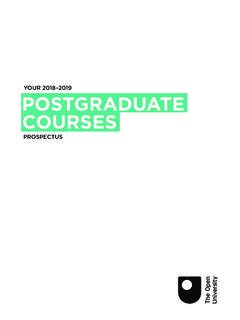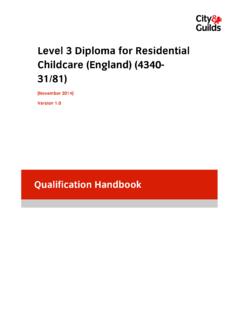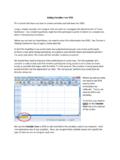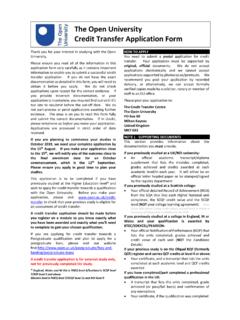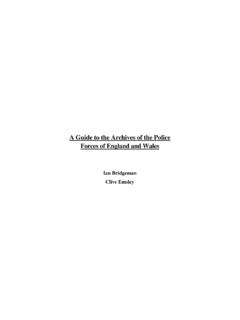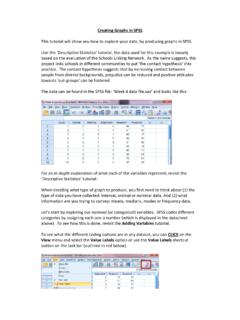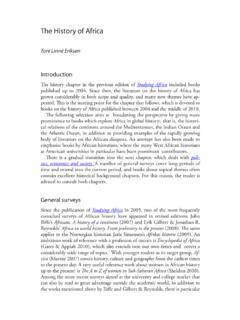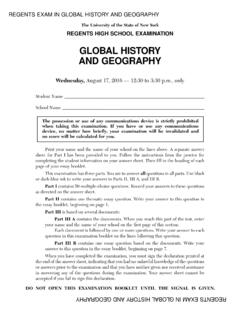Transcription of History of BBC Persian Service - Open University
1 The BBC Persian Service 1941-1979 By: Dr. Massoumeh Torfeh Originator: Professor Annabelle Sreberny Since 1932, the BBC has carried the British values of impartiality, integrity, quality and creativity across the world . The BBC s Global News Division, through the world Service s 43 language services , funded by an ongoing investment by the Foreign Office; bbc world television, funded by commercial revenue; and the international-facing online sites, together reach over 180 million people every week with a dynamic tri-media offer.
2 (From BBC s web site.) Abstract The Persian Service of the BBC WS broadcasts to Iran and also to Afghanistan and Tajikistan where the majority of population speak Persian referred to as Farsi in Iran, Dari in Afghanistan and Tajiki in Tajikistan. The Iranian Diaspora also received the Persian broadcasts in Short Wave and at times Medium Wave in a variety of European and Middle Eastern countries. Its web page which began in 1996 is one of the most visited in Farsi language. However, it was blocked in Iran in January 2006.
3 The BBC s own web page describes the role of language services as follows:1 The Empire Service first broadcast on short wave radio in 1932. Its aim was to develop international communications to Britain s overseas territories. In the run up to world War II, the Foreign Office began funding BBC language services to counter the growing international propaganda of the Axis powers. From its start, the Service s editorial independence from the British government was safeguarded, as it was seen as the cornerstone of the Service s credibility and therefore of its impact.
4 After emerging as the leading global broadcaster during the war, bbc world Service was incorporated into the BBC s Royal Charter in 1946. The Persian Service radio, originally launched during the final years of the Second world War, has played a major role in relations between the UK and the Persian -speaking world in crucial political conjunctures. During the last 66 years as funded by the Foreign and Commonwealth Office many Iranians have viewed the Persian Service with skepticism yet at the same time regarded it as one of the most trusted sources of news and information.
5 The BBC claims it has kept its independence, strongly guarding its credibility and objectivity. The 1946 broadcasting White Paper, drawn up by the Labor government under Clement Attlee, set out the relationship between government and the BBC, which still exists today. It read: "The Government intend that the Corporation should remain independent in the preparation of programs for overseas audiences, although it should obtain from the government departments concerned such information about conditions in those countries and 1 the policy of His Majesty s government towards them as will permit it to plan its programs in the national interest.
6 "2 However, the wording doe not set out a clear dividing line about what the BBC can and not say. Research conducted with reference to primary sources and interviews with those who have worked in the BBC Persian Service indicates strong pressure from the Government at crucial political conjunctures. This paper attempts to look at whether the British Government as the provider of funds for the Persian Service has tried to use the broadcasts as a tool for political influence. It will in turn ask whether the Persian Service has -- as part of the BBC s editorial whole managed to keep its independence intact in reporting events in a balanced and objective way.
7 Since tackling the entire History is outside the boundaries of the present paper, selected critical periods are chosen whereby the relations between the Foreign Office and the Persian Service became more intense: the removal of Reza Shah Pahlavi in 1941; the UK-Iran oil negotiations during 1948-53; the period leading up to Islamic Revolution of 1979. Since the 30 year rule cannot as yet be applied to do the years 1978 and 1979, we can only reach close to the year of the Islamic Revolution in Iran.
8 The research is conducted through three primary sources: interviews with those working with the Persian Service , the archives of the Persian Service broadcasts, and documents of the Public Records Office. The paper has also examined several secondary sources such as books by those directly involved either at the British or Persian Governments or in the BBC. The researcher has herself worked for the BBC Persian Service for over 15 years and some of the accounts are based on primary observations. This paper will first set the scene as the BBC Persian Service is launched in 1941 and then examine the four named stages with reference to the central questions as outlined above.
9 2 Political Background The BBC entered world War II unsure of its role. Britain was in a state of total war with every resource focused on winning the battle against the Axis powers. BBC archives recounts the story of the first days thus: Managers at the fledgling corporation debated whether the BBC should report the conflict objectively - or contribute to the war effort by broadcasting morale boosting propaganda. By the autumn of 1940, Britain was suffering almost nightly bombardment from German planes.
10 On 15 October a delayed action bomb hit Broadcasting House in London. It landed in the music library at 2010 GMT and exploded 52 minutes later, killing seven people. Listeners to the Nine o'clock news heard the announcer pause, and then continue reading. 3 In the summer of 1943 the BBC's two "War Reporting Units" were set up comprising of teams of seven containing a mixture of reporters, producers and engineers. The BBC created the title War Correspondent for Richard Dimbleby who covered world War II in Europe, Africa and the Middle East.
